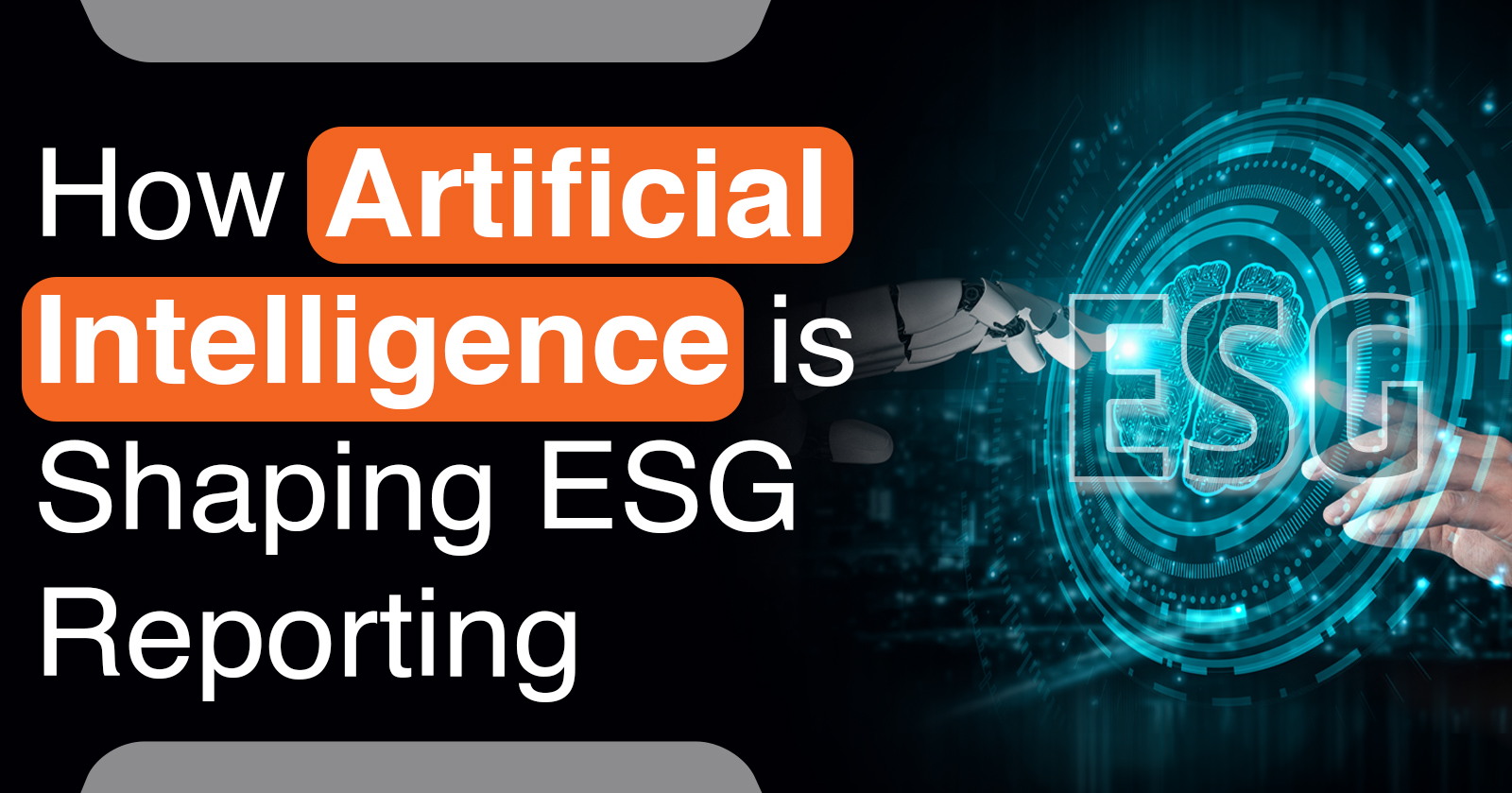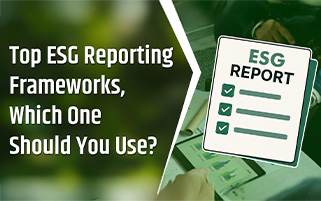How Artificial Intelligence is Shaping ESG Reporting

Today, companies manage large amounts of ESG data from energy use and carbon footprint to workforce diversity and supply chain performance. Managing and reporting ESG data is becoming difficult, stakeholders want more transparency, accuracy, and updated information.
Old ESG data management methods, which depend on manual processes, make it difficult to collect data. With the traditional ESG reporting method, companies face many challenges to provide reliable, accurate, and standardised reports.
Integrating AI in ESG reporting helps overcome these challenges by collecting data automatically, improving accuracy, and reducing reporting time.
As ESG rules become more complex and data-focused, AI makes the ESG report simple and meets business needs.
What Is ESG Reporting?
ESG stands for Environmental, Social, and Governance. It shows how a company cares for the environment, treats people, and manages its business responsibly. Today, investors check a company’s ESG report before deciding to invest.
Companies create ESG reports to share their progress in these areas. It starts with an ESG assessment, which helps understand the current situation. ESG planning helps set a practical plan to achieve sustainability and governance targets.
ESG Data Management Challenges for Companies
There are many challenges in managing ESG data for companies, such as no common reporting standards across industries, scattered data across different departments, complex regulations, and much more.
Multiple Reporting Frameworks : There are no common global standards for ESG reporting. This makes it difficult for an MNC that must follow many reporting frameworks at once.
Most companies use one or more frameworks such as the Global Reporting Initiative (GRI) or Sustainability Accounting Standards Board (SASB) standards.
Complex Rules: Sustainability reporting rules are becoming more detailed and mandatory. New global and regional laws, like those in the EU, require large and listed companies to disclose their social and environmental impacts. Regulations continue to evolve, demanding more accurate and transparent reporting.
Understanding ESG Impact: ESG data can help improve business performance, but in many companies, this data is saved separately from financial data.
It makes it difficult for investors to understand how ESG performance affects profits, costs, or cash flow. Without integrating ESG data in financial planning, they will not get real and reliable results.
Complex ESG Data Management
ESG data management is a complex process. It includes many frameworks and ESG standards. To prepare the ESG report, collect data from different departments. Manual work in spreadsheets leads to delays and errors. Constantly changing disclosure rules and unclear terminology make ESG reporting more difficult.
AI’s Impact on Modern ESG Data Management
AI in ESG Reporting is changing the way of collecting ESG data by providing several features, such as automating routine work and providing valuable insights. It helps collect ESG data faster, standardise formats, find errors, and improve accuracy, which helps ESG teams to focus on major goals instead of manual tasks.
Automating Data Collection: ESG technology tools can connect to different systems like ERPs, reporting software, and supplier databases to automatically collect ESG data. It classifies information in a standard format that follows reporting standards, reducing manual tasks and improving accuracy.
Improving Accuracy and Reducing Errors: AI in ESG reporting can quickly find and correct data errors like missing or inconsistent values. It also matches data with ESG standards such as GRI, SASB, and CSRD, saving time and reducing mistakes in reports.
Real-Time Reporting and Forecasting: By using IoT devices and live data feeds, AI enables real-time tracking of key ESG metrics, like emissions, water use, and compliance. It can also predict trends, model future outcomes, and help manage ESG risks.
Limitations of AI in ESG Reporting
AI in ESG reporting plays an important role in ESG reporting, but it also brings ethical challenges. There are many challenges to AI in ESG reporting, such as a lack of transparency, accuracy, and more.
Bias and Discrimination: AI learns from data, and if that data is biased, the AI can make unfair decisions, which is not good for the whole data since it would be of no use then.
Privacy and Data Security: AI works with large volumes of sensitive data. If not protected properly, it can lead to privacy issues, data misuse, and loss of confidence.
Accountability and Transparency: The data provided by the AI platforms is not reliable, which could affect the accuracy rate of an ESG report.
Environmental Cost: While AI can help save energy, training large AI models and running data centers consumes a lot of power. This can increase carbon emissions, creating an environmental impact that impacts ESG goals.
Why Choose Sustrack for ESG Reporting?
Sustrack is your reliable partner for creating a sustainable and responsible business. We provide complete ESG solutions, including assessments, strategy, and reporting. Our team develops a customised plan based on your industry and goals.
Whether you are beginning your ESG journey or expanding it, with ESG expertise, we deliver real results, which you can rely on, since the accuracy level is 100% through which valuable and interested customers get attracted easily.




